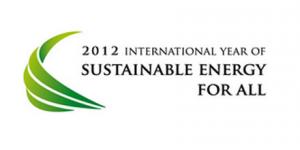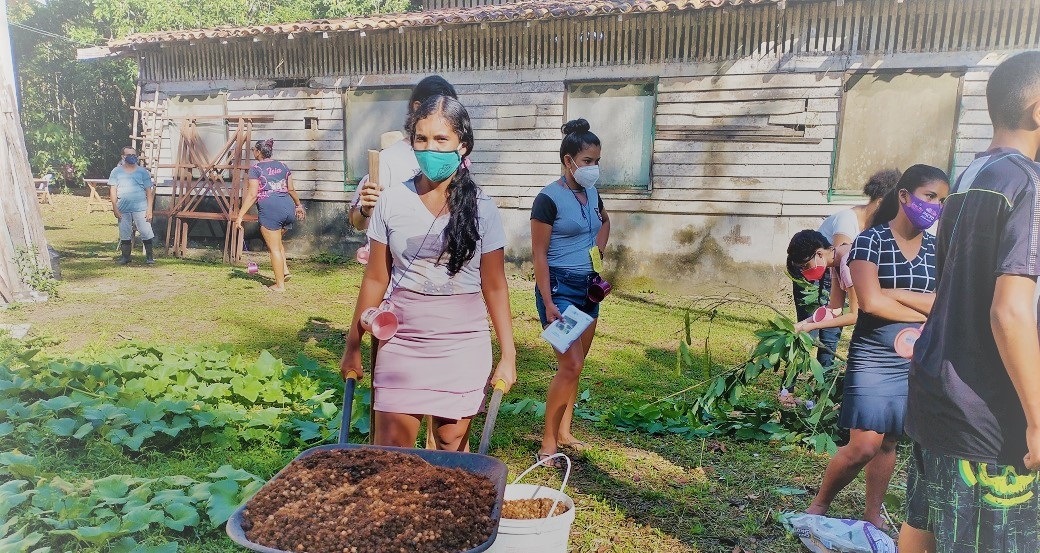Sustainable Energy for All – Or Sustained Profits for a Few?
 Sustainable Energy for All (SEFA)1 is an initiative founded and led by the UN Secretary-General. SEFA is developing an Action Report and programme for which they will seek endorsement from governments during the Rio+20 Conference. The Rio+20 Draft Zero, however, lends explicit support to SEFA , saying: “We propose to build on the Sustainable Energy for All initiative launched by the Secretary-General…We call for provision of adequate financial resources, of sufficient quality and delivered in a timely manner, to developing countries for providing efficient and wider use of energy sources”.
Sustainable Energy for All (SEFA)1 is an initiative founded and led by the UN Secretary-General. SEFA is developing an Action Report and programme for which they will seek endorsement from governments during the Rio+20 Conference. The Rio+20 Draft Zero, however, lends explicit support to SEFA , saying: “We propose to build on the Sustainable Energy for All initiative launched by the Secretary-General…We call for provision of adequate financial resources, of sufficient quality and delivered in a timely manner, to developing countries for providing efficient and wider use of energy sources”.
It thus proposes to couple support for energy efficiency and what it calls renewable energy (which includes biofuels and large hydro) to a process which, as is discussed below, is led by a hand-picked group of mainly corporate representatives, UN organisations and international finance organisations, including the World Bank. It proposes to couple such finance to a process, i.e. SEFA, which lacks any democratic structure, requires no multilateral consent, has restricted government involvement in the High-Level Group to five representatives worldwide, and offers no opportunities for civil society to influence recommendations and decisions – only to help implement them.
Its key objectives are to 1) ensure universal access to “modern energy services”, including electricity, 2) double the rate of improvement in energy efficiency and 3) double the share of renewable energy in the global energy mix by 2030. This, according to the UN Secretary-General will help reach the Millennium Goals and help protect the global climate. SEFA follows on from a previous initiative by the UN Secretary-General, the Advisory Group on Energy and Climate Change (AGECC)2.
Who runs SEFA?
The High-Level Group is chaired by Charles Holliday, Chair of the Bank of America (and former director of DuPont) and by Kandeh Yumkella, Chair of UN Energy, Director of UNIDO. Their ‘partnership’ illustrates the overall vision for public-private partnership behind SEFA. Members of the High Level Group include corporations such as Statoil, Siemens and Eskom, big finance companies such as Riverstone Holdings and Bloomberg New Energy Finance, consultancies including Accenture, UNEP, UNDP and the International Renewable Energy Association, the World Bank and Ted Turner’s United Nations Association and just two other NGOs, IUCN and Barefoot College, with Practical Action listed as the only NGO that is a partner organisation. A former CEO of BP (John Browne) and an ex chairman of Shell (Mark Moody Stuart) represent Riverstone Holdings and the Foundation for the UN Global Compact respectively. The only governments represented are those of the US, EU (European Commission), Russia, India and Brazil. Members of the High-Level Group appear to have been hand-picked, without any open call or consultation, by the UN Secretary-General. Many of the similarly hand-picked Advisory Group on Energy and Climate Change are represented on the SEFA High-Level Group.
What’s SEFA’s plan?
SEFA issued a working document in January 20123 and they have identified the following five aims for this year:
1) Making universal access to clean energy an international priority;
2) Obtaining commitments from national governments and ‘stakeholders’ to advance their global objectives (a particular aim for Rio+20);
3) Creating implementation mechanisms through national coordinating committees and new public-private partnerships;
4) Helping create new innovative finance mechanisms;
5) Developing accountability and performance mechanisms.
Yes to industrial biofuels, no to traditional bioenergy – What kind of energy does SEFA want to see?
SEFA vaguely define sustainable energy as “supporting long-term human development in all its social, economic and environmental dimensions”. Energy access is defined as “modern energy services, including electricity and improved end-use devices such as cookstoves, to meet basic human needs at affordable prices” and includes renewable and other ‘low carbon’ energy sources. Their predecessor, AGECC, gave examples of ‘modern energy’: Natural gas, LPG, diesel, biodiesel and ethanol.
SEFA are not seeking any discussion about what type of energy deserves support as ‘low carbon’ and ‘renewable’ . Technology impact assessments are far removed from the remit SEFA has set for itself. Indeed, they do not see themselves as a policy forum but rather, it appears as a high-level stakeholder forum for implementing a better business environment for companies investing in whatever they call ‘clean’, ‘modern’ , ‘sustainable’ or ‘low carbon’ energy. Brazil’s investments in hydro dams and their bioenergy and biofuel programme are cited as positive examples.
SEFA’s definition of unsustainable energy is clearer: ‘Traditional fuels’, including wood, charcoal and animal waste as well as coal used for cooking and heating. On the other hand, there is nothing to suggest that they class coal or biomass burnt in power stations as unsustainable – those, after all, are “modern”, not traditional energy. In fact, substitution of traditional biomass with LPG or natural gas is explicitly supported by SEFA. And although SEFA supports improved cooking stoves and works closely with the Global Alliance for Clean Cookstoves, they nonetheless class traditional biomass fuels, however they are used, and not just 3-stone cook fires as ‘unsustainable’. The facts that some cookstoves promoted by companies as ‘modern’ or ‘efficient’ are extremely inefficient and sometimes not at all clean burning, and that modern bioenergy includes power stations burning vast quantities of wood with as little as 20% efficiency and emitting large quantities of particulates and other air pollutants, including soot, have not been acknowledged by SEFA nor by AGECC.
Public-private stakeholder action
SEFA is one of several ‘action focussed’ private-public processes which involve UN organisations but are happening outside any multilateral agreements and conventions, none of which are mentioned anywhere on SEFA’s website.
The role of governments and the public sector is to be largely restricted to providing investment opportunities and otherwise aiding business. They are to subsidise research and development, deploy public funds to “reduce risk and maximise commercial investment”, guarantee customer demand for whatever energy systems businesses define as sustainable, e.g. through portfolio standards, feed-in-tariffs or renewable energy standards, help companies access money from international finance organisations or through innovative finance mechanisms.
Under SEFA, UNDP has taken the role of facilitating National Coordinating Mechanisms. Those are to be set up by governments. Their roles are to ‘fill information gaps’, ‘raise public awareness’ and ‘build commitment’ – not to comment on SEFA’s wider policy or strategy.
Companies, on the other hand, are promised ample opportunities to increase shareholder values, including through gaining “access to new and expanded markets”, new sets of customers, strengthening “relationships with governments, policy-makers and public institutions in home and foreign markets” and better brand recognition. Their role includes identifying changes in policies and regulations needed ‘to spur investment’, provide input to regulators, developing relevant international standards (a task for business alone, according to SEFA), and investing not only in ‘sustainable energy solutions’, but also in ‘social and philanthropic projects”.
Civil society’s role relegated to helping implement SEFA’s vision
Civil Society organisations are generally described as stakeholders with specific roles in furthering the aims of SEFA. Those include identifying and advocating policies which support the objective of SEFA, monitoring and providing feedback on policy performance, developing community-based business models, mobilising philanthropic capital, monitoring government use of funds, providing training and education to communities. As for communities, they are mentioned merely as recipients of energy investments, training and education. There are no references to consultations, let alone free, prior and informed consent, Indigenous Peoples’ rights, etc. Civil society, like most governments, is given no opportunity for input into SEFA’s decisions on policy and strategy. The same applies to the Energy Access Practitioners’ Network described below.
Energy Access Practitioners’ Network – getting business done:
While SEFA scopes out the broader policy and strategy positions, more detailed policy planning is happening in associated working group of the Energy Access Practitioners’ Network. This was launched by the UN Foundation as part of the SEFA initiative. The role of the working groups is to facilitate private sector and civil society collaboration on delivering energy services in developing countries, energy access planning and execution, to identify barriers to investment, make policy recommendations and share information. This Network has more members than SEFA’s High-Level Group, many of them from the corporate sector4. Membership is by application to a member of the UN Foundation.
Working groups include
Finance and investment: This working group aims to address barriers around access to capital, attracting investment, innovative financing mechanisms, access to carbon markets, etc;
Mapping: This group looks at mapping different parts of the world as being most suitable for particular types of energy (i.e. developing broad energy recommendations top-down and without any debate with governments and communities in those regions);
Energy and agriculture: This group looks at the use of renewable energy in agriculture as well as other approaches to increase agricultural productivity. It also aims to develop bioenergy supply chains.
Conclusion:
SEFA, which parties are to be asked to support at Rio+20, according to the Zero Draft, is a non-transparent, unaccountable forum which seeks to bypass governments and UN processes and to usurp the Rio process to advance corporate interests under the guise of “sustainable development”. ‘Sustainable energy’ is defined according to corporate convenience, not according to the needs of climate, biodiversity and people. Shareholder profits and ever more corporate-friendly policy environments are emphasised by SEFA whereas impacts of energy choices and investments on climate, environment and communities are ignored.











